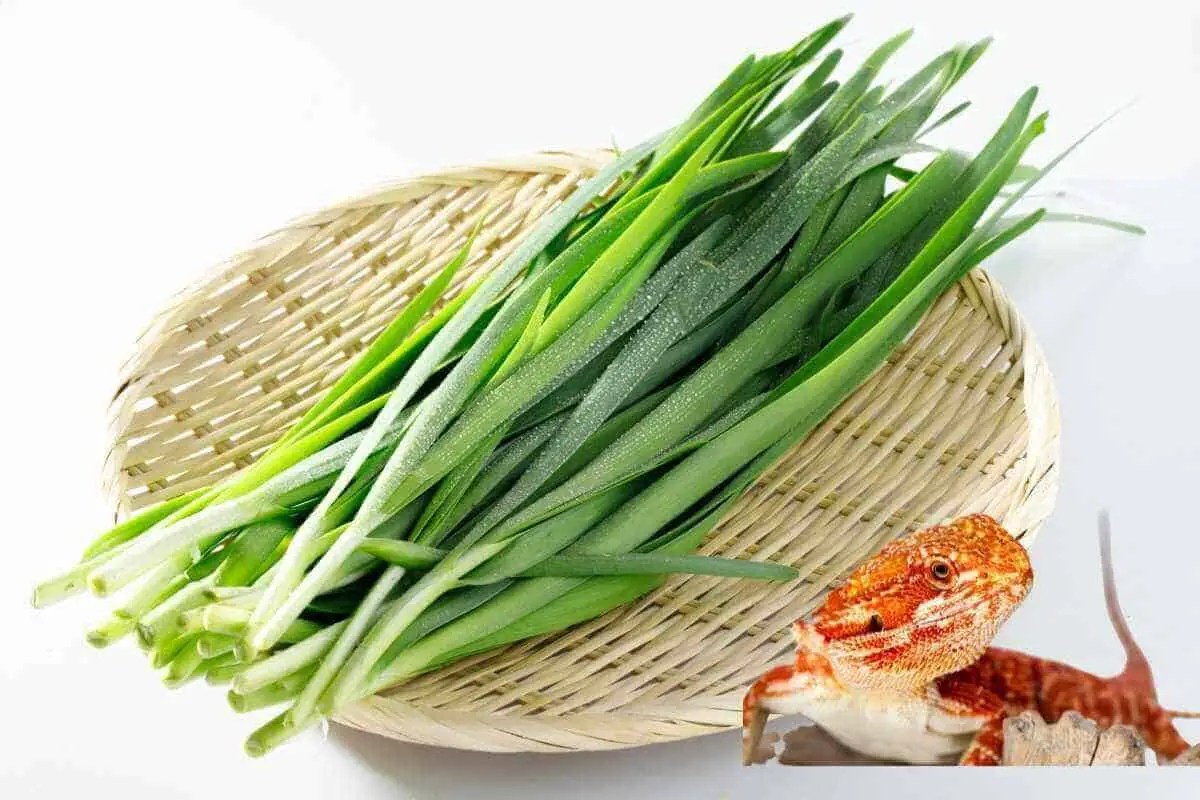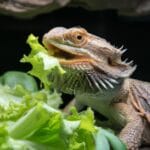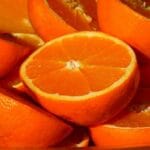So, you’re wondering if your bearded dragon can enjoy a sprinkle of parsley? It’s a great question, and one many beardie owners ask! While parsley boasts vitamins like A and C, it also contains oxalates, which can interfere with calcium absorption. This guide dives into the pros and cons of parsley for bearded dragons, offering safe serving suggestions, preparation tips, and healthier leafy green alternatives. Want to know if your scaly friend can enjoy a leafy green snack? Discover the surprising truth about whether bearded dragons can eat lettuce. Curious about adding some citrus to your dragon’s diet? Uncover the juicy details on whether bearded dragons can eat oranges and ensure their health and happiness.
Parsley’s Nutritional Perks and Potential Pitfalls
Parsley isn’t just a garnish; it’s a nutritional powerhouse packed with vitamins A, C, and K, along with iron and calcium. Vitamin A supports healthy vision and immune function, while vitamin K is essential for blood clotting. However, like many leafy greens, parsley contains oxalates. These compounds can bind to calcium in your dragon’s digestive system, potentially hindering absorption. Why is this a concern? Calcium is crucial for strong bones and proper muscle function. Insufficient calcium can lead to Metabolic Bone Disease (MBD), a serious condition causing weakened bones, deformities, and even paralysis.
Safe Parsley Portions for Bearded Dragons
Due to its oxalate content, parsley should be an occasional treat, not a dietary staple. Offering it once or twice a month, in small quantities, is likely safe. Think of oxalates as tiny sponges soaking up calcium. The more parsley consumed, the more “calcium sponges” are present, potentially increasing the risk of calcium deficiency.
Curly vs. Flat-Leaf: Does it Matter?
Both curly and flat-leaf parsley contain similar levels of oxalates. The key, regardless of the type, is moderation. Small amounts are unlikely to cause problems.
Preparing Parsley for Your Beardie
If offering parsley, wash it thoroughly to remove pesticides and residues. Finely chop the fresh leaves and stems into manageable pieces. Avoid dried parsley flakes, which may contain unwanted additives. Fresh is always best!
Spotting Potential Problems
After feeding parsley, monitor your dragon for changes in behavior, appetite, or droppings. Consult a veterinarian if you notice anything unusual. They can determine if the parsley is causing problems and advise accordingly.
Healthier Leafy Green Alternatives
While parsley can be a treat, other leafy greens are better suited for regular consumption. Collard greens, dandelion greens (ensure they’re pesticide-free), and butternut squash are excellent alternatives, boasting high nutrient content and lower oxalate levels.
| Green | Oxalate Content | Calcium Content | Notes |
|---|---|---|---|
| Parsley | Moderate | Moderate | Occasional treat only, in very small amounts |
| Collard Greens | Low | High | A fantastic staple green |
| Dandelion Greens | Low | High | Another great staple option, rich in nutrients |
| Butternut Squash | Low | Moderate | Good source of Vitamin A and other beneficial compounds |
Is Parsley Safe for All Reptiles?
While this guide focuses on bearded dragons, remember that different reptiles have unique dietary needs. What’s safe for a bearded dragon might not be suitable for a tortoise, gecko, or snake. Some reptiles, like tortoises, have digestive systems better equipped to process oxalates. Before introducing any new food to your reptile’s diet, research their specific needs and consult a reptile veterinarian.
Important Note: This information is intended for general knowledge and does not replace professional veterinary advice. Consult a qualified reptile veterinarian for specific dietary recommendations for your pet.
Herbs for Your Bearded Dragon: A Flavorful and Safe Approach
Beyond the occasional parsley sprig, what other herbs can enrich your bearded dragon’s diet? Let’s explore some safe and flavorful options.
Safe Herbs
- Cilantro (Coriander): A good source of nutrients and generally well-tolerated.
- Basil, Mint, Oregano, Rosemary, Thyme, Dill, Sage, Marjoram: These can add variety and flavor, but offer them in moderation. Some are slightly acidic and may upset your dragon’s stomach if overfed.
- Dandelion Greens & Collard Greens: While not technically herbs, these leafy greens are nutritional powerhouses and low in oxalates, making them excellent staples.
Herbs to Avoid
- Spinach: High in oxalates, which can hinder calcium absorption.
- Rhubarb & Bay Leaves: Toxic to bearded dragons and should never be offered.
Serving Herbs Safely
Wash all herbs thoroughly to remove pesticides. Chop into small, bite-sized pieces. Introduce new herbs gradually, monitoring for any adverse reactions.
| Herb | Safe? | Notes |
|---|---|---|
| Parsley | Sparingly | High in oxalates; offer in small amounts. |
| Cilantro | Yes | A good source of nutrients. |
| Basil, etc. | Moderation | Offer small quantities for variety; some may cause digestive upset. |
| Dandelion/Collard Greens | Yes | Nutritional staples. |
| Spinach | No | High in oxalates. |
| Rhubarb/Bay Leaves | No | Toxic. |
Toxic Vegetables for Bearded Dragons: Essential Knowledge for Owners
While a varied diet is important, some vegetables are harmful to bearded dragons. Knowing which ones to avoid is crucial for their health and well-being.
Vegetables to Absolutely Avoid
- Onions, Garlic, Chives, Leeks: These contain compounds that can damage red blood cells, leading to anemia.
- Rhubarb: Extremely high in oxalates, making it highly toxic.
- Avocado: Contains persin, a toxin harmful to bearded dragons.
- Mushrooms: High in phosphorus and acidity, potentially disrupting digestion.
Vegetables to Feed Sparingly
- Spinach & Beet Greens: While not completely toxic, their oxalate content can hinder calcium absorption if consumed in excess. Moderation is key.
| Toxic Vegetables | Why are they dangerous? |
|---|---|
| Onions, Garlic, Chives, Leeks | These can damage a bearded dragon’s red blood cells. |
| Rhubarb | Disrupts calcium absorption, vital for healthy bones. |
| Avocado | Avocados contain persin, a toxin harmful to many animals. |
| Mushrooms | High in phosphorus and acidity, which can harm their digestion. |
| Spinach, Beet Greens | High oxalate levels; limit intake. |
Remember, current scientific understanding is always evolving. Consult a qualified reptile veterinarian for personalized dietary advice. They can offer up-to-date recommendations based on your dragon’s individual needs.
- Discover Long Black Pepper: Flavor & Health Benefits - April 25, 2025
- Shocking Twists: The Grownup Review: Unreliable Narration - April 25, 2025
- A Quiet Place Book vs Movie: A Deep Dive - April 25, 2025
















